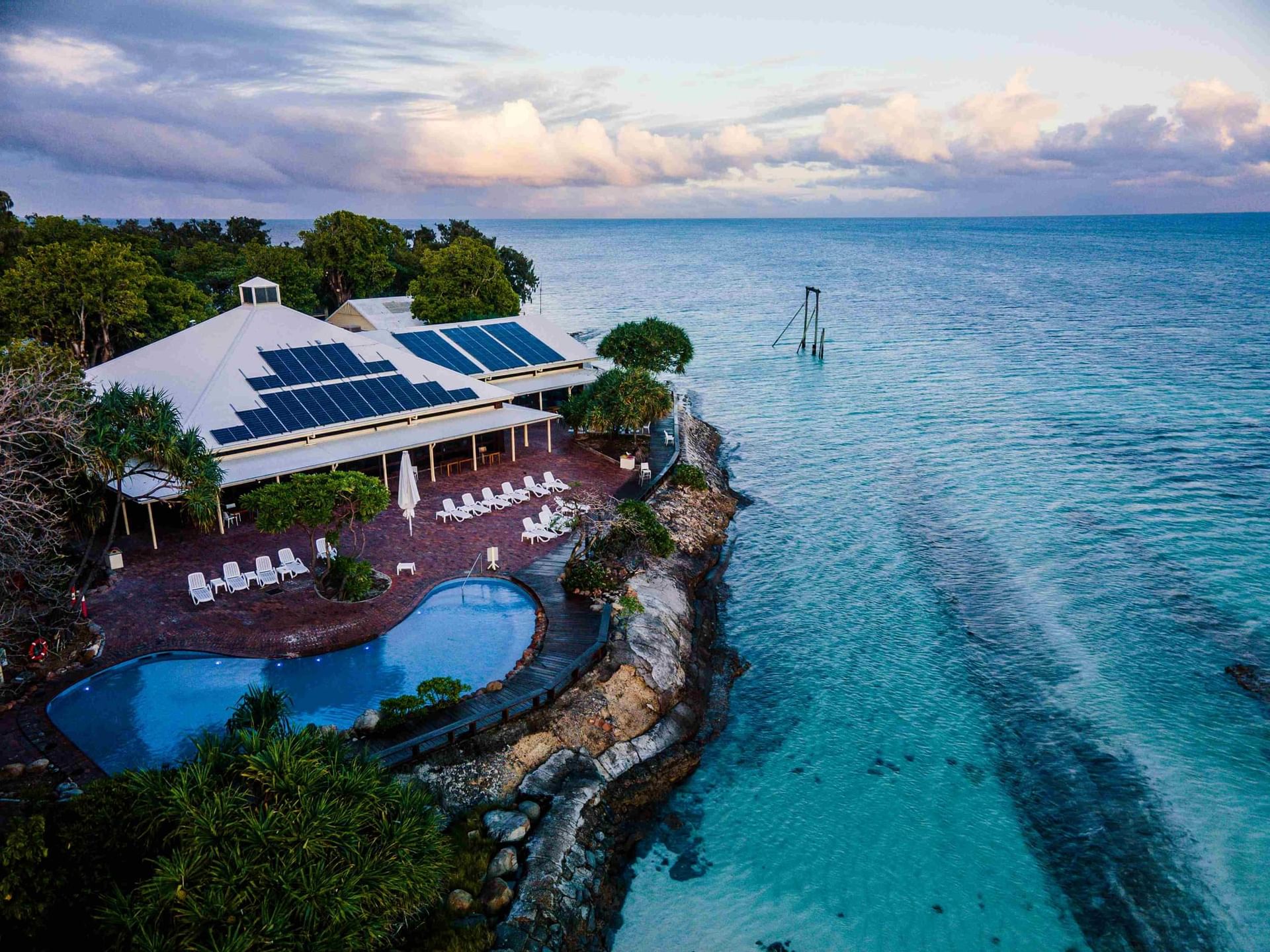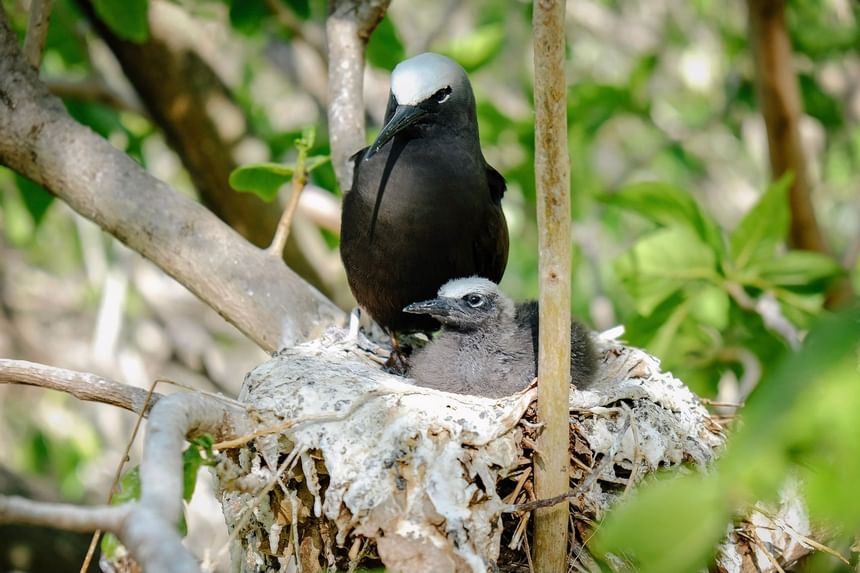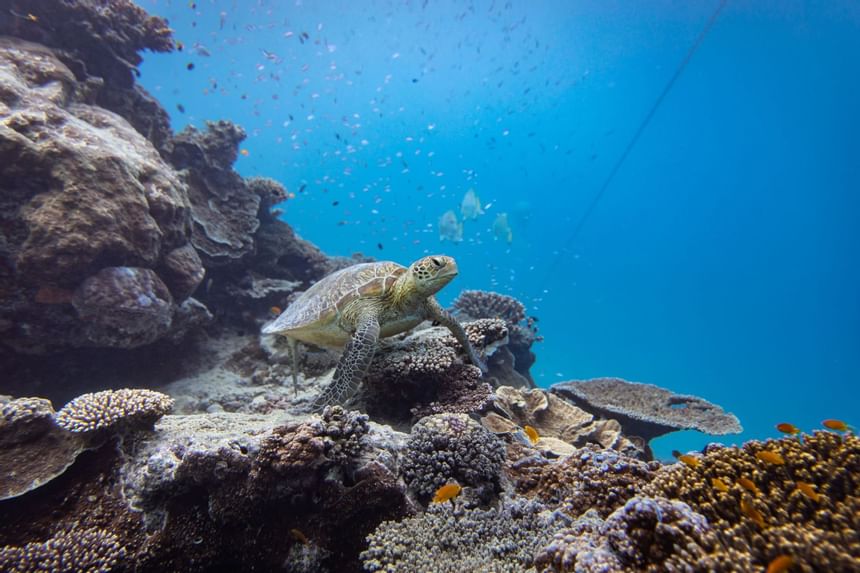Minimising Waste and Pollution
We're proud to operate with a zero-single-use-plastic policy and advanced waste management systems:
Plastic-Free Guest Experience: We’ve eliminated single-use plastics across the resort where possible. This includes switching to refillable toiletries in rooms and removing plastic straws and containers.
Onsite Waste Reduction: We use a wood chipper to minimise waste generation. All recyclables — including cans, bottles, and cardboard — are carefully sorted and sent back to Gladstone for recycling.
Sustainable Building Materials: Wherever possible, we source local eco friendly suppliers and products in resort maintenance and upgrades.
Join Us in Protecting the Reef: How You Can Help
Sustainability is a shared journey. During your stay, and when you return home, we encourage you to take small actions that make a big impact on the reef and our climate future:
Use Reef-Safe Sunscreen: Help protect coral health by choosing environmentally friendly sunscreen — available for purchase at the Heron Island shop.
Bring a Reusable Water Bottle: Reduce plastic waste by using our filtered water stations and avoiding single-use bottles.
Recycle Waste: Use recycling bins across the island to ensure waste is handled responsibly.
Respect Wildlife and Habitats: Stay on marked paths, avoid flash photography at night, observe nesting turtles from a safe distance, staying low out of line of sight from at least 10 metres to help protect sensitive species.
Light Pollution: Inappropriate or excessive use of artificial light at night. Light pollution wastes energy, endangers ecosystems and causes an increase in greenhouse gas output and our carbon footprint.
Learn and Share: This natural coral cay provides a genuine eco-experience and opportunity to witness the magic of the world's largest coral reef. Attend a reef talk, take a guided walk, and share what you learn about climate action and reef conservation with others.
We thank you for traveling consciously and being part of something bigger - preserving the Great Barrier Reef for future generations.
Top 10 Responsible Travel Tips
- Before you go, switch off all electronics at home
- Pack light - you can reduce emissions by only taking the essentials
- When leaving your room, make sure all lights, air conditioners and devices are switched off.
- Reduce emmissions, meet the locals and immerse yourself in the culture by using public transport.
- Use reusable products to reduce disposable plastic waste et. water bottles, plastic bags and straws
- Be mindful of your surroundings. Aim to disrupt the natural environment as little as possible.
- Avoid polluting the oceans. Apply a natural sunscreen 1/2 hour before swimming to prevent it from harming marine ecosystems.
- Save water when you stay - opt not to have towels and sheets washed everyday, re-wear clothes that aren't dirty
- If renting a car, opt for smaller, more fuel efficient vehicles and try to car pool where possible
- Lead by example and spread the word! Encourage other guests to be environmentally conscious and demonstrate how this can be achieved.
Heron Island Resort respectfully acknowledges the Traditional Custodians of the Country on which we operate, the Bailai, Gooreng Gooreng, Gurang, and Taribelang Bunda peoples. We pay our respects to Elders past, present, and emerging. And extend that respect to all First Nations peoples.





